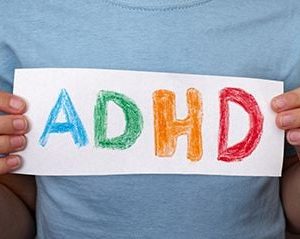- Could Your Grocery Store Meat Be Causing Recurring UTIs?
- Are You Making This Expensive Thermostat Error This Winter?
- Recognizing the Signs of Hypothyroidism
- 10 Strategies to Overcome Insomnia
- Could Artificial Sweeteners Be Aging the Brain Faster?
- Techniques for Soothing Your Nervous System
- Does the Water in Your House Smell Funny? Here’s Why
- Can a Daily Dose of Apple Cider Vinegar Actually Aid Weight Loss?
- 6 Health Beverages That Can Actually Spike Your Blood Sugar
- Treatment Options for Social Anxiety Disorder
Youngest Kids With ADHD in Class No Less Likely to See Diagnosis Fade

Experts have long wondered whether diagnoses for attention deficit hyperactivity disorder (ADHD) in the youngest children in a class would hold.
A new study suggests that being the youngest, and possibly most immature, did not appear to make a difference.
“We know the youngest children in their year group are more likely to be diagnosed with ADHD — but many believe this is because they lag behind their older classmates,” explained senior study author Dr. Samuele Cortese, a child and adolescent psychiatrist at the University of Southampton in the United Kingdom.
“However, no one has ever explored if these younger children who are diagnosed with ADHD retain the diagnosis later on — until now,” Cortese said in a university news release. “Our study shows for the first time that these youngsters are no more likely to lose the diagnosis over time than older children.”
More than 360 million people worldwide have been diagnosed with ADHD, according to the World Health Organization. About one-third are children and adolescents.
Symptoms include impulsiveness, disorganization, poor time management skills, difficulty focusing and restlessness.
This new study was led by researchers from University of Southampton and Paris Nanterre University, who collaborated with 161 scientists from around the world.
They used data from more than 6,500 patients who had ADHD, who were followed for a period between the ages of 4 and 33.
The findings were published Oct. 25 in the journal Lancet Psychiatry.
“Our work shows the diagnosis of ADHD in children with a young relative age is not especially unstable,” said first author Corentin Gosling, an associate professor from the Paris Nanterre University and a visiting researcher at Southampton.
“However, it could not assess whether it is an appropriate diagnosis or it is because once a child receives the ADHD label, parents and teachers consider the child as having ADHD and are influenced by the diagnosis,” Gosling noted in the release. “Future studies should solve this question.”
More information
The U.S. Centers for Disease Control and Prevention has more on ADHD.
SOURCE: University of Southampton, news release, Oct. 26, 2023
Source: HealthDay
Copyright © 2026 HealthDay. All rights reserved.










